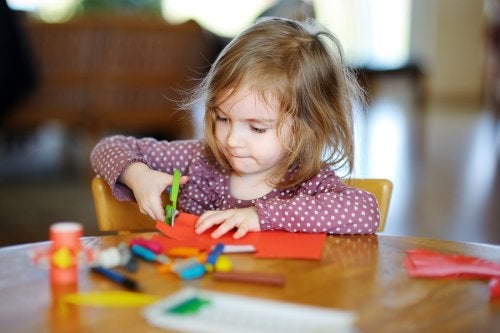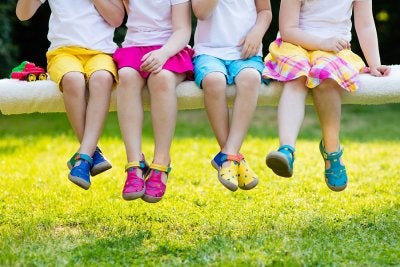-
Motor Skill Milestones in Pre-K
Kids in pre-K go through an amazing number of transitions that always amaze parents. In particular, kids in this age group reach a number of important milestones with their motor skills. If your child is enrolled in pre-K in Pembroke Pines, keep an eye out for these exciting developmental changes.
Both gross and fine motor skills take a leap in pre-K. In terms of gross motor skills, kids learn to control their running more precisely, including stopping and turning more gracefully. Kids at this age learn to hop on one foot, do somersaults, and bounce, catch, and throw a ball. Parents are also thrilled to discover that their kids can now brush their teeth, comb their hair, and dress themselves without help. Fine motor skill development in pre-K includes learning to print letters, cutting on a line, and using utensils appropriately. Copying shapes, like crosses and squares, also becomes easy.

-
Fun Games That Teach Self-Regulation
One invaluable skill that kids learn in early childhood education is self-regulation. In the classroom, teachers use games to foster this area of child development for better classroom management and so that students get the skills they need to succeed in school as they progress through each grade. Your child’s early childhood education teacher in Pembroke Pines will be happy to discuss the activities he or she uses to teach self-regulation with you. These games are just a few of the fun ways teachers help kids learn the all-important skill of self-regulation and self-control.

Red Light, Purple Light
Many students are familiar with the game red light, green light, but changing the colors makes students adapt while practicing their color recognition. Start by assigning “go” and “stop” meanings to two different colors, and use construction paper in those colors to indicate when students should move and when they should stop. Once the children have automated their responses to those colors, change to two different colors and repeat the activity. This game forces students to concentrate and regulate how they respond to cues.
Simon Says
Simon Says is a classic game that offers many opportunities to practice self-regulation. To succeed, students must listen, concentrate, modify their movements, and follow directions. Giving students each a chance to be Simon further increases the chances to work on self-regulation.
Think or Say
Emotional self-regulation is also an important part of early childhood education. The Think or Say activity makes children think about how they are feeling and is especially ideal for helping kids through their tattling stages. Teachers can introduce many different scenarios and ask the class whether they should say what they are thinking or keep it to themselves. The scenarios can range from dealing with hurt feelings from a classmate to what to do if they see a classmate who is not following directions. Teachers can adapt the scenarios to make them relevant to things that are happening in the classroom.
-
Library Do’s and Don’ts for Kids
Visiting the library is a fun way to encourage your kids to love to read. When your child is working on Kindergarten reading in Pembroke Pines , going to the library to find books to supplement what he or she is learning in the classroom is a perfect way to show your child the world of reading for pleasure.
Help your kindergarten-age child get the most from his or her library experience by teaching the rules in this video before you go. The library is not the place for running or loud noises. Show your child how to treat books with respect and only handle them with clean hands. The library can become a favorite family destination and a good resource for supporting Kindergarten reading once your child learns the rules.
RECENT POSTS
categories
- Uncategorized
- Early Learning Center
- Pre-K
- Children
- Child Care Center
- Preschooler
- Preschool Blog Category | Tanglewood Academy
- Preschool Lunch
- Tanglewood Academy
- After-School Program
- Toddler School
- Early Childhood Education
- preschool activities
- pre-kindergarten
- childhood education
- pre-kindergarten programs
- Children’s education
- enrichment opportunities
- Kindergarten
- Nurturing Education Environment
- Toddler Care
- Child Separation Anxiety
- Toddlers
- Summer camp
- summer activities
- VPK
- Voluntary Pre-K
- Outdoor Activities
- Smart Strategies
- Tie Shoes
- Snacks
- Physical Activities
- Education
- Enrichment Activities for Kids
- Early Education Activities
- Preschool Curriculum
- Classroom Learning
- APPLE accreditation
- Language Comprehension
